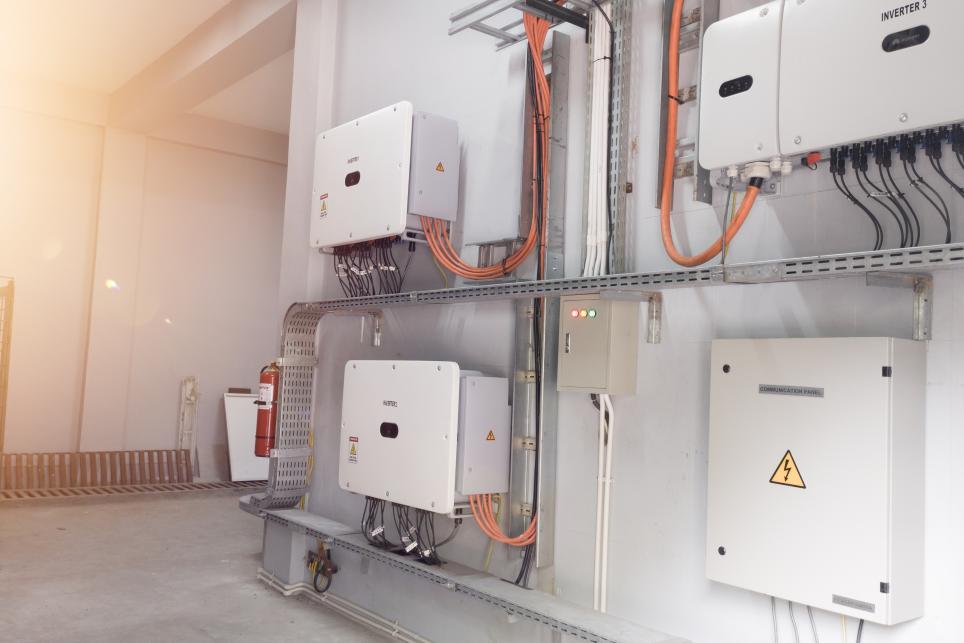-
News
May 31, 2024
A New APEC Guide for Best Practices of Enabling Safer Implementation of Battery Energy Storage Systems (BESS) Across APEC Economies

In 2023, UL Research Institutes, UL Standards & Engagement, and the office of the U.S. Trade Representatives took the lead for an Asia Pacific Economic Cooperation project under the Subcommittee of Standards & Conformance on Sharing Best Practices and Capacity Building on the Role of Battery Energy Storage Systems Standards in Promoting Safety, Energy Resilience and Sustainability. Various APEC economies such as Australia, Indonesia, Japan, New Zealand, Philippines, Singapore, Chinese Taipei, and Thailand supported this project proposed by the U.S. The final report of this project is now available on the APEC website, which will serve as a valuable guide for APEC economies.
While the membership make-up of APEC is diverse, member economies are equally committed to the long-term agenda of accelerating the clean energy transition. BESS is commonly recognized as a viable solution to the challenges brought about by the intermittent nature of renewable energy sources, and APEC economies have committed to implementing BESS projects that are larger and bigger in scale. Hence, this project is timely to build up the capacities of the economies of APEC in standards and conformance infrastructure, so as to better equip APEC and its economies to address issues relating to the safer implementation of BESS.
This project spanned three broad phases: the first phase involved carrying out research to understand the BESS landscape across APEC economies – namely, the implementation progress of the international standards, codes, regulations and policies that could support APEC economies’ net-zero transition ambitions. The second phase was a physical workshop program, to plug in the knowledge gaps in APEC economies’ understanding of safer implementation of BESS, as ascertained by the research conducted in the first phase. The last phase was the production of a knowledge report, to detail the findings and proceedings of the prior two phases, for APEC economies’ reference and future follow-up.
The in-person workshop in the second phase of project was attended by over 60 participants from 14 APEC economies that have a stake in BESS. Across the expert content sessions held, there were robust discussions on BESS initiatives by Standards and Conformance organizations, the best practices on implementing standards, codes, and policies to grow the BESS market globally, and the public safety risks of BESS that more stakeholders should be involved in mitigating.
Expert speakers from across the UL Enterprise proudly represented their organization at the workshop, including Dr. David Steel and Dr. George Borlase from ULSE, who provided perspectives on standards as solutions to BESS safety issues; Dr. Steve Kerber of the Fire Safety Research Institute and Dr. Judy Jeevarajan of the Electrochemical Safety Research Institute gave insightful presentations on the energy storage systems and battery research ULRI have undertaken; and LaTanya Schwalb from UL Solutions shared the role of conformity assessment in supporting BESS policy and standards implementation. The positive reception given to the workshop and its program by the APEC economies’ stakeholders is demonstrative of the value of proliferating technical knowledge among like-minded stakeholders to advance the safe implementation of an emergent technology, such as BESS.
The project illuminated gaps and opportunities within the BESS safety landscape where stakeholders from APEC economies could collaborate on solutions. Mutual Recognition Arrangements, harmonization of standards and technical guidance relating to battery and BESS are some of the cited examples in which future collaborations will be welcomed. APEC stakeholders have also expressed continued interest to be kept abreast of the emergent safety risks of battery, and the game-changer international standards that could enable a safer global BESS market for all.
The project report can be accessed here. If you are involved in the design, construction, sale, or operation of BESS, and you would like to improve safety in your industry, take a moment to learn how you can get involved.